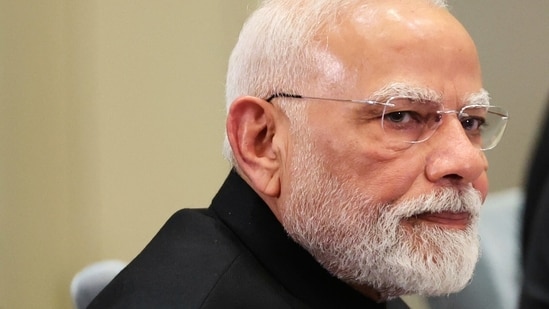“No double standards”: In Tianjin declaration, Pakistan not mentioned in context of Pahalgam, but among members who condemn terror, as are China, Russia, Iran. Ten weeks can mean a lot in diplomacy. Prime Minister Narendra Modi’s China visit showed this, notably in how the Pahalgam terror attack has now been pointedly condemned in the September 1 joint declaration of the Shanghai Cooperation Organisation (SCO), of which Pakistan is a full member too.
On June 26, at the SCO Defence Ministers’ Meeting held also in China, in the city of Qingdao, India’s Rajnath Singh refused to sign a joint declaration as it did not mention the April 22 attack at Pahalgam in Jammu and Kashmir that killed 26 people. It mentioned incidents in Pakistan, though.
In the Tianjin declaration now, Pakistan is not named in the context of Pahalgam, but it is among the signatories who have condemned terrorism as a common threat to SCO members. Russia, China and Iran are among the 10 permanent members who signed the document.
PM Modi slams double standards, declaration echoes
India had carried out retaliatory attacks under Operation Sindoor on terror bases inside Pakistan after the Pahalgam massacre, as it vowed to treat their backers just as it treats the perpetrators. In his summit address, PM Modi did not name Pakistan, but drew attention to “some nations” supporting terrorism openly. “In the fight against terrorism, India stands firm on unity, and the SCO has an important role,” he said, asserting that double standards were not acceptable.
Tianjin declaration on Pahalgam and terror
The Tianjin SCO declaration echoed this stance: “The Member States strongly condemn terrorism in all its forms and manifestations, stress that double standards in the fight against terrorism are unacceptable, and call on the international community to combat terrorism, including cross-border movement of terrorists.”
It also said, “The Member States strongly condemned the terrorist attack in Pahalgam on 22 April 2025. They expressed their deepest sympathy and condolences to the families of the dead and the wounded. They further stated that perpetrators, organisers and sponsors of such attacks must be brought to justice.” Even before PM Modi had departed for China for summit, India’s foreign ministry had said it expected strong condemnation of the Pahalgam attack.
India’s wins amid US pressure
Besides this diplomatic win for India, PM Modi’s meetings with China’s Xi Jinping and Russia’s Vladimir Putin on the sidelines apparently added to India’s heft as it faces a massive 50% tariffs on trade with the US. Donald Trump has said half of those tariffs are penalty for India’s purchase of Russian oil — an assertion that India has questioned and sought to debunk.
In the latest, India’s oil minister Hardeep Singh Puri wrote on Monday that the country is not “profiteering” from Russian oil imports. Its purchases have, in fact, stabilised markets while keeping prices from rising, he argued.
Reports have also said Trump may actually be incensed at the Modi government not agreeing with his claim that he “stopped a war between India and Pakistan” after Pahalgam by using trade as “leverage”. India has a sovereign stance that it does not act according to third parties’ wishes in bilateral matters.



